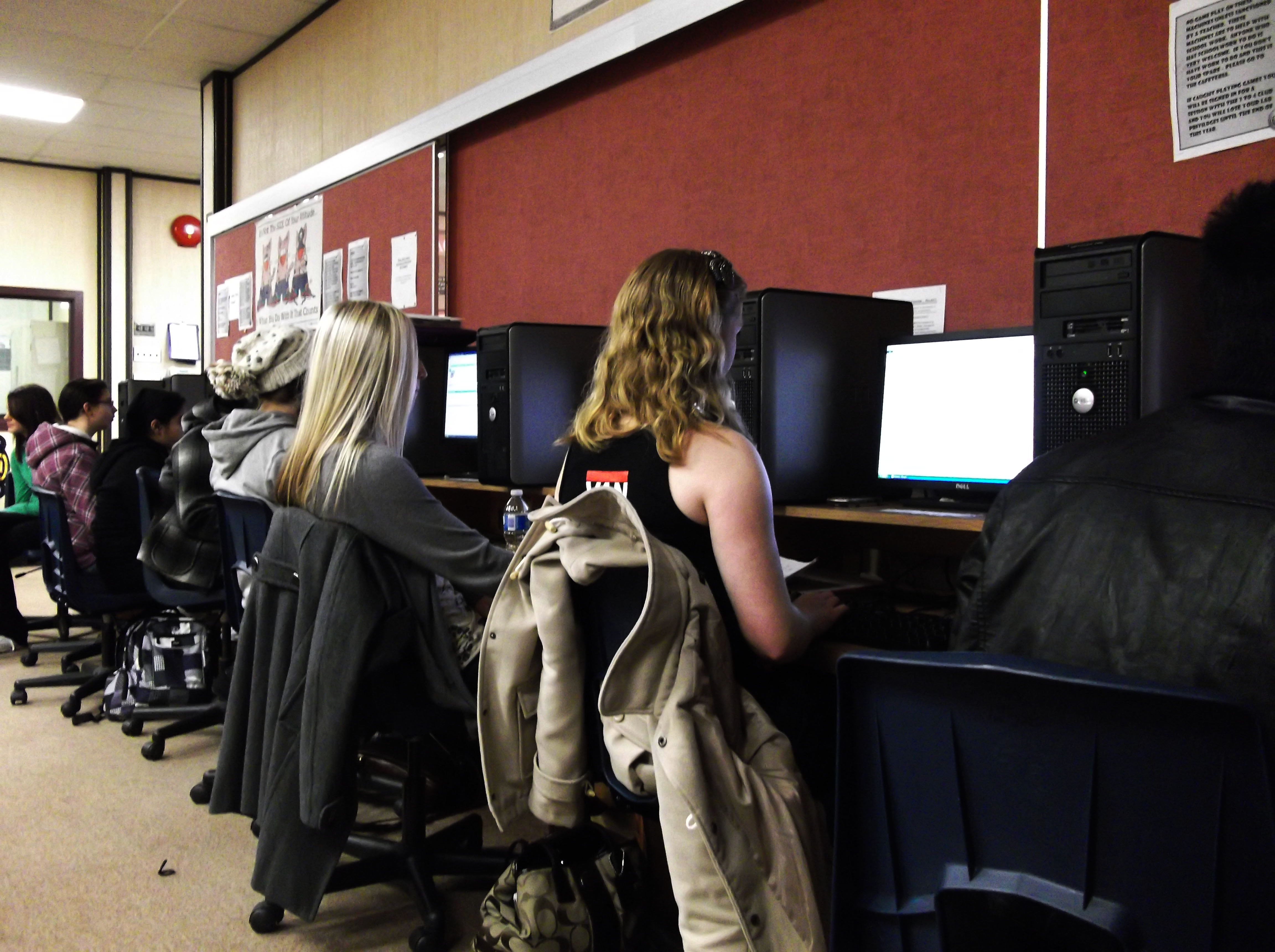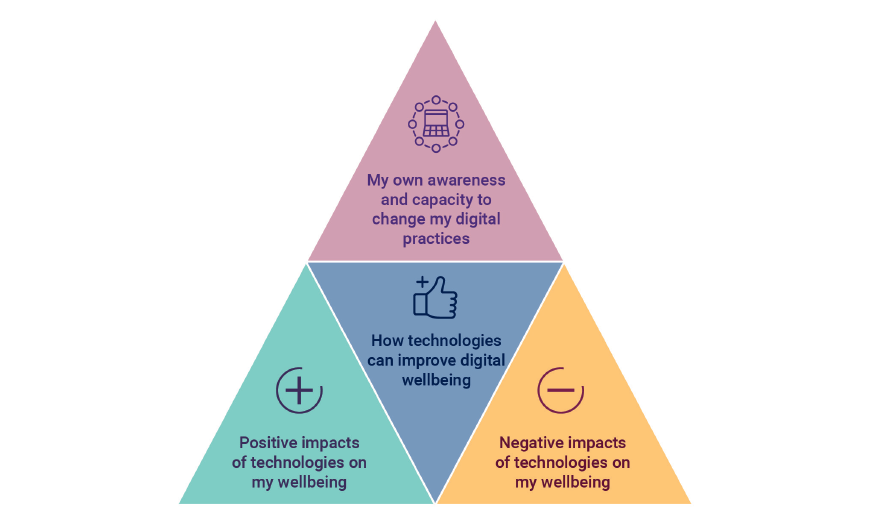General
E-Safety
Online Resources for Yeovil College Staff, Parents and Students

E-Safety
Online Resources for Yeovil College Staff, Parents and Students

Instructions: Clicking on the section name will show / hide the section.
E-safety Information for Staff
This section provides information, links and resources
especially for staff working with a variety of learners at FE/HE level.

Provided by the UK Safer Internet Centre, this helpline is for professionals who work with children in the UK. It is co-ordinated in partnership by: Childnet international, the South West Grid for Learning and the Internet Watch Foundation.It is co-funded by the European Commission.
The CEOP (Child Exploitation and Online Protection) Centre website.
Online resource providing comprehensive information and advice on a variety of e-safety topics.
Provided by the CEOP Centre, this website is aimed at children and young people, with age-appropriate advice, resources and activities, and also sections for teachers, parents and carers.
Resources, guidance and information for professionals to raise awareness of online sexual harassment amongst young people aged 13-17 years and to increase reporting.
Comprehensive topics and guidance for teachers and educational staff
Excellent online guidance materials for any non-teaching staff working in FE - including what to look for regarding use of technology, social media and online activity.
How should teaching and professional staff working in education handle social media? Useful online guide dealing with frequently asked questions.
Comprehensive guide for schools and education providers about the use of social media for extremist purposes.
Online safety calendar for the current year offering ways to add e-safety into curriculum.
From the Safer Internet Centre, this helpline provides support with all aspects of digital and online issues, offering signposting, advice and mediation.
This checklist is designed for teachers and professionals working in education to work through and assess how they would deal with different e-safety issues arising in their personal and professional lives.
Comprehensive guide discussing evaluation of reliability online
Online resource for teachers and lecturers on how to prepare and run pro-active sessions on e-safety. Links to further information.
Dealing with Online Discrimination and Cyberbullying
This insightful factsheet from Cyberbullying.Org has detailed statistics and information about the instances of cyberbullying towards LGBTQI+ teens, and how to resolve the issue in schools and colleges.
Moving article and thinkpiece about the tragic suicide of a young gay man after experiencing homophobic cyberbullying and image sharing.
This short guide is designed to help LGBTQA+ teenagers and young adults deal with online issues, such as targeted cyberbullying, online homophobia and transphobia.
You will find useful information, resources and links to websites and organisations.
An online safety teaching toolkit for educators to deliver to young people with SEND.
Downloadable parent and carer's guide to internet safety, from the Cerebra charity website.
Comprehensive guide from Report-It.Org about internet hate crime of all descriptions, what the law says and how to deal with it.
E-Safety - Information for Parents
This section provides information and resources for staff and students who are parents or carers.
The CEOP's dedicated site for parents and carers who wish to make sure their children are taught how to use the Internet safely.
Newly launched world leading Internet Safety organisation, designed to help parents safely naviagte the Internet with and for their kids. With resources and information regarding key issues, online activities and related to age group.
Provided by UK Safer Internet.org, this webpage provides advice, how-to guides and information about setting up parental controls, guides to various types of technology, and how to support children in staying safe online.
Useful guide to helping young people use smart phones safely and responsibly.
Advice from the NSPCC on setting up controls, and facilitating safe online gaming.
This CEOP collaborative site for parents has a useful guide for helping children play Minecraft safely.
Official guidance from the Instagram website and advice centre for the popular photo-sharing app.
From the Internet Matter website, this clear how to guide explains how Snapchat works and how parents and carers can instruct teens how to use it safely.
CEOP created and curated playlist explaining how to deal with issues arising from taking and sharing nude selfies.
Article from the Internet Matters website, discussing how parents can help their children manage their online reputations - and what they key issues are.
Guide on how to support critical thinking and reliability online
Fantastic comprehensive resource showing parents how to set parental controls for a range of devices, applications and sites.
The main page on cyberbullying from the national bullying charity website. Contains, advice, links and also information about all types of bullying.
UK cyberbullying charity website, including a dedicated helpline, links and other useful information.
TedXTalk by Katherine Didier about the impact of cyberbullying and how she started a media campaign to promote awareness and tackle cyberbullying, based on her own personal experience.
Cybersmart's short film about a group of high school friends who post a rumour about a rival online - and set off a chain reaction. Dealing with cyberbullying, sexting and posting online videos and photos.
Online video about cyberbullying, how it works and how to challenge it.
Discover more about legal protections against cyberbullying and how they might help you.
Help and advice from the National Bullying Helpline
From the UK Safer Internet Centre, this simple resource breaks down how an online reputation can be shaped.
Hub page with resources discussing healthy friendships, stalking, sexual harassment and more involving online relationships.
Stonewall's dedicated guide for LGBT young adults, covering key issues in staying safe online and dealing with homophobia and other issues.
A short video about malicious tagging online.
Information booklet about sexting, its consequences and how to deal with the issue.
How To... Privacy and Security Settings
FAQ's, including privacy and safety guidelines, for the picture sharing app, Snapchat. To access, click on the "FAQ" link on the icon bar at the bottom of the page.
From the official Instagram blog, this page gives information regarding safety and security whilst using your Instagram account.
The official guidelines regarding privacy and security from the popular online community.
How to control your privacy and other guidelines for the music and audio sharing site, Soundcloud.
Privacy and sharing location settings on the free app, Foursquare.
Official guidance from SWGfl surrounding various social media apps and platforms, and what to check to ensure you are safe. Includes: Facebook, Twitter, Instagram, Snapchat, Roblox, TikTok, Yubo and Netflix.
Identity Protection
The UK's national fraud reporting service and their guidelines about what to do in cases of identity theft.
Short video about an employer's view of your social profile.
From the Get Safe Online website, this selection of videos offers tips and guides on how to be safe online.
Internet Grooming and Stalkers
Direct link to the CEOP UK police safety centre, which allows you to report your concerns or any instances of online abuse.
ThinkUKnow's guide for young adults about stalking online, how to deal with it and how to get help.
This quick guide tells you everything you need to know about dealing with cyberstalking.
"Sexting", Explicit Content and Revenge Porn
Advice booklet on the risks of sexting, its consequences and how to deal with it.
If you receive an indecent image or message from someone, or are being harassed for sexual information or chat online, you can use this to ask for help.
Australian short video demonstrating why sexting is such a bad idea.
Technology expert and executive director Nyika Allen about her experiences with an ex-lover posting indecent images online, and how she now advocates for all victims of revenge porn.
Information, helplines and advice from the Victim Support website.
Brief video clip explaining why logging off and shutting down are really good to do!
Spot and report scam emails, texts, websites and calls.
How to set up and use video conferencing services, such as Zoom and Skype, safely and securely.
Useful infographic to show how to back up your data properly.
Useful infographic explaining ransomware, how to protect your data and what to do if the worst happens.

Figure 1: JISC Digital Wellbeing Model (Jisc, 2019)
Click the link above to access our Digital Wellbeing Survey and Activity
Body Image
Social Media Negativity
Promoting Digital Wellbeing
Digital Identity, Reputation and Netiquette
Parents:
Direct link to the CEOP UK police safety centre, which allows you to report your concerns or any instances of online abuse.
Video highlighting the risks of giving out personal information online.
Give short feedback for the online grooming video you watched.
Learn to turn off location tracking settings for photos taken on a SMART phone.
Give short feedback on the identity protection video(s) you watched.
Short clip introducing young people to the repercussions of posting elements of their social lives online.
Learn how to mold your digital identity to a professional standard and impress prospective employers.
Give short feedback for the online "Creating a Positive Digital Identity" videos(s) you viewed.
Give short feedback on the online "Sexting" videos(s) you viewed.
Give short feedback for the online "Cyberbullying" videos(s) you viewed.
Fake News and Misinformation Online (Tutor Discretion)
Give short feedback for the online "Online Security" activities.